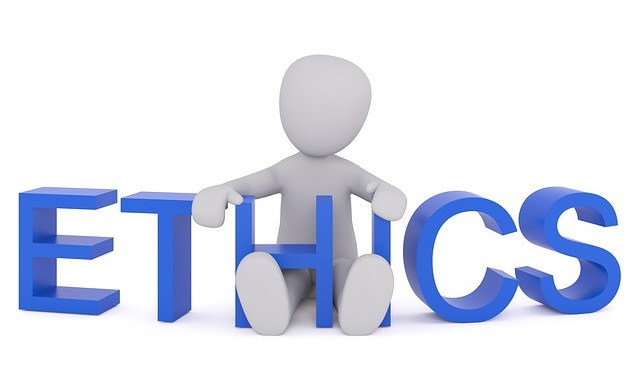 More than half (52.4 percent) of C-suite and other executives say global corporate ethical behavior has improved since the enactment of the Sarbanes-Oxley Act in 2002, according to a recent Deloitte poll. Yet challenges remain. Only 41.3 percent of executives say their organization’s global ethics cultures are strong.
More than half (52.4 percent) of C-suite and other executives say global corporate ethical behavior has improved since the enactment of the Sarbanes-Oxley Act in 2002, according to a recent Deloitte poll. Yet challenges remain. Only 41.3 percent of executives say their organization’s global ethics cultures are strong.
Communicating corporate ethics standards and whistle-blowing procedures to employees is a major roadblock to improving corporate ethics. Subgroups of employees often hold different standards for ethical behavior. It’s incumbent on internal communications take the lead in educating those employees and business partners.
Now is the time for corporations to re-examine and update ethical compliance programs, particularly for those relying heavily on employees to report misconduct, said Don Fancher, Deloitte Risk and Financial Advisory principal and U.S. Forensic leader in a press release.
“As we’ve seen for decades, no organization is immune to unethical behavior,” Fancher said. “But, the field of ethics compliance is evolving, as professionals’ skillsets, technologies to help hone and monitor programs, and multi-jurisdictional regulator coordination all improve.”
The Deloitte survey reveals that:
Less than one-third (32.5 percent) of executives are highly confident their organization’s employees will report unethical behavior. Executives say the biggest challenges to employees complying with global ethics programs include:
- Lack of clear, concise and frequent ethics program communications and training for employees (28.5 percent).
- Lack of incentives and repercussions on ethical behavior respectively (16.3 percent).
- Varied ethical postures of third parties with whom employees regularly interact (14.8 percent).
- Differing ethical standards of various employee groups (12.5 percent).
As in the case of Wells Fargo bank, the business culture infused by the c-suite can prompt staff to undertake unethical activities. At Wells Fargo, staff responded to unremitting pressure to meet sales goals by opening false accounts.
Approaches to Improve Business Ethics
Some leading companies turn to technology solutions such as social media analytics and other advanced analytics to uncover possible unethical behavior of employees and third parties to improve ethics compliance programs, according to Deloitte.
Deloitte experts recommend addressing these issues:
Executive leadership support. Do all leaders support the program? Strong ethics programs are organization-wide with ongoing, full C-suite and board attention, as opposed to being managed by the general counsel or chief compliance officer alone. For example, chief accounting officers and CFOs can help unearth bribes, fraud and other illicit schemes that may be hiding in the books.
A whistleblower hotline or speak-up line. Examine the level, frequency, and type of reports received through the company whistleblower hotline. Testing, sometimes with the help of analytics or other tools, can help discern reasonable levels of reporting and false positives, so that anomalous reports are more easily identified and more quickly investigated.
Due diligence of third-parties. It’s not unusual to perform background checks around third parties upon entering into new contracts. But personnel changes, financial strain, and other factors can change cultures quickly. Annual third-party surveys and more covert social media analytics can help organizations understand with whom they’re doing business.
Employee surveys. Annual employees surveys on ethical standards and behaviors and exit interviews can lead to better informed updates to standards language, employee training and communications. Employee feedback can also help identify disparate subcultures in which interpretations of “ethical” behavior are inconsistent with the rest of the organization.
Many internal communicators may not know about advanced tools and techniques now available. Many still rely on annual employee surveys or ad hoc newsletter surveys, says Katie Paine, CEO of Paine Publishing LLC., in her blog, The Measurement Advisor.
Paine recommends placing survey questions on the company’s Intranet quarterly or after employee meetings. That will provide fresh and relevant data and may uncover shifts in employee attitudes.
Monitor key metrics on employee engagement, recruitment and retention on a communications dashboard, Paine recommends.
Bottom Line: Despite improvement, corporate ethics still have shortcomings. Internal communications programs that educate employees about ethics expectations and whistle blowing procedures can improve corporate ethics, experts assert. Technological tools are now available to help communications teams monitor and analyze their internal communications.
William J. Comcowich founded and served as CEO of CyberAlert LLC, the predecessor of Glean.info. He is currently serving as Interim CEO and member of the Board of Directors. Glean.info provides customized media monitoring, media measurement and analytics solutions across all types of traditional and social media.




